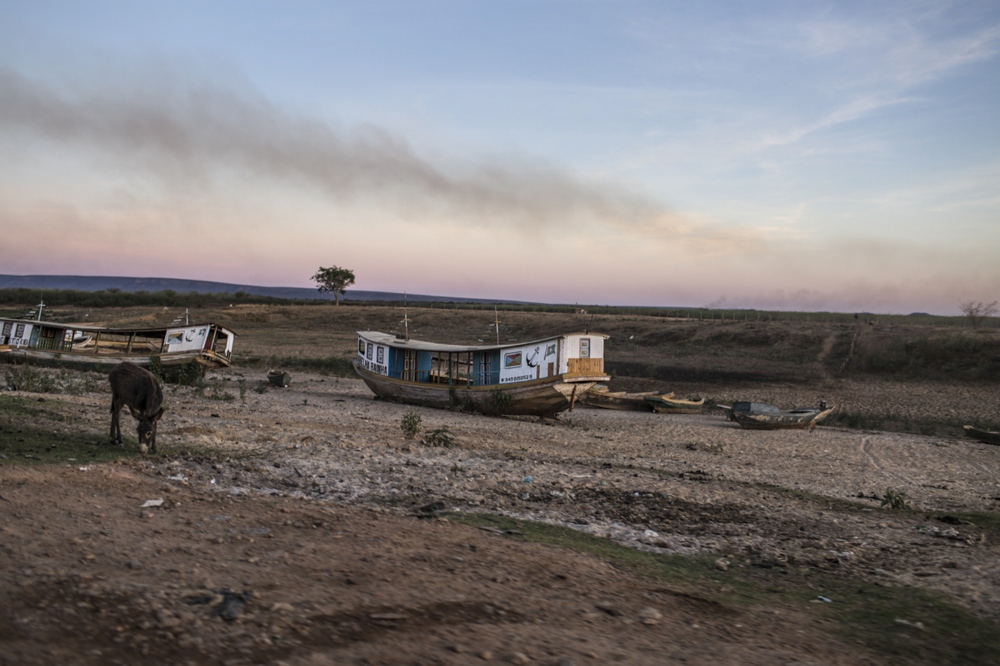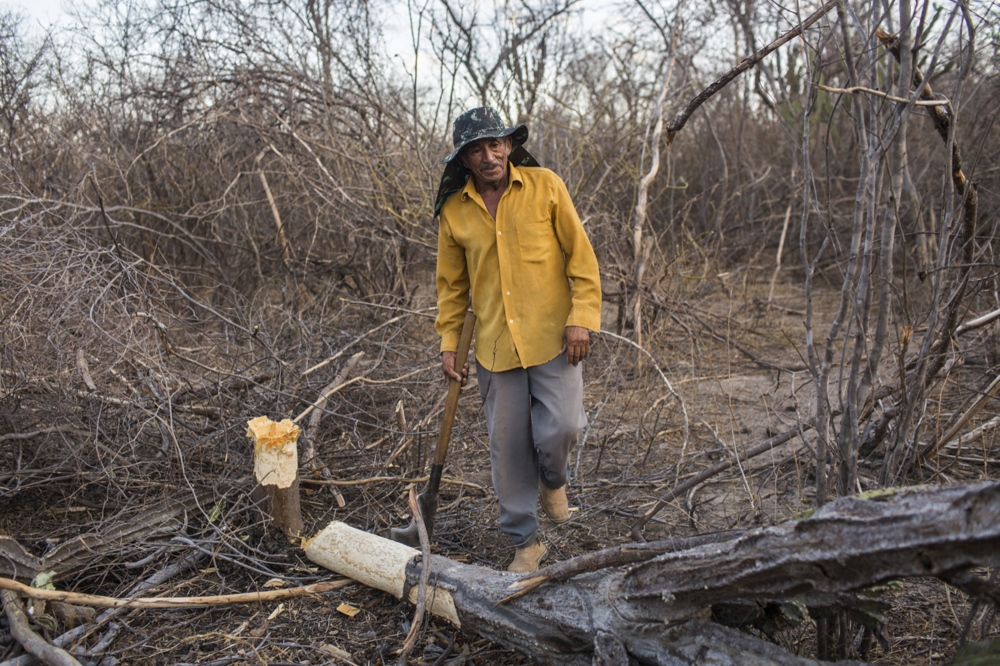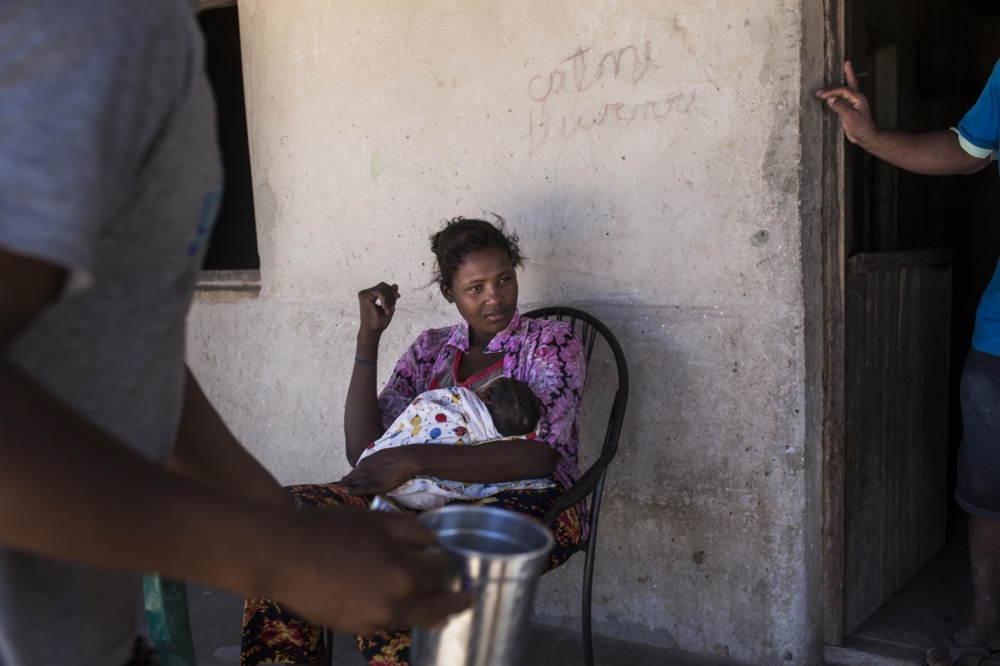Private Story
Hinterland
I met Joaquim and his wife, Doralice, who wore a pink dress, at their adobe-cement home in Bahia state. Billowing clouds hovered in the far distance and for a moment we were struck by the hope of rain. But Joaquim, a 71-year-old subsistence farmer, was worried. The Sertão is passing through a difficult moment. He was witnessing his land turn to desert. Today what little rain falls is not enough to grow their crops. They lost the seeds because everything they grew had died.
During colonial times, the Sertão was a place of refuge for escaped slaves, oppressed indigenous communities, gun-toting bandits and white cattle ranchers pushed out by the sugarcane industry. Today it's home to 20 million people and the largest rural poverty rate in Latin America.
I first travelled to the region in 2015. The barren landscape and unforgiving heat were unlike anything I had ever experienced. Yet I kept returning, drawn to the people and a way of life that is little known outside Brazil.
Deep in the heart of the Sertão, farmers like Joaquim have long lived with erratic rainfall and little access to water. But due to systematic discrimination by what Brazilian journalist Antonio Callado termed "the drought industry," they are relegated to a life in poverty. By directing "drought funds" away from social services, education, and water-related infrastructure projects and toward development in the state capitals, this political system ensures that the poor stay poor, and inspires migration to the cities for low-paying jobs.
A seven-year drought crisis, an economic recession, and austerity measures intensify the struggle of the sertanejo farmer. What will happen to these families? Without access to education and social mobility programs, children born into poverty remain poor their entire lives. Nearly one-third of the regional population stays impoverished for generations.
My previous work, with support from NGOs such as ActionAid, addressed the impact of the worst drought in 50 years on subsistence farmers. By continuing my focus on the intrinsic connection between farmer and water, the Visura & United Photo Industries Storytelling Grant on Climate Change will further enable me to develop a deeper body of work that captures the spirit and struggle of the Sertão farmers.
I would like to return to the Sertão one final time to finish my work about this nuanced relationship and to raise awareness about this under-reported region. Through personal stories of the Sertão I will photograph subjects, such as homes abandoned by migrants; drought refugees forced to leave because of a lack of water or evicted by irrigation programs; former drought concentration camps of the early 1900s; and religious pilgrimages. I will also photograph a series of family portraits to create a public representation of the family construct since many families in the Sertão do not have a visual record of their history. (The families will also get a photo).
The Hinterland is a story that falls through the cracks. It is my desire to bring to light this forgotten region and to illustrate the poetry of the Sertao."It is tragic to watch a brave northeastern man become a slave in the land of the South," sung Patativa do Assaré, one of Brazil's most influential cordel artists, referring to the preconditioned fate of low-paying jobs for the uneducated that awaits the recently migrated.
The Sertão isn't just a place, it is also a memory where exists a longing, or saudade, to return.




















